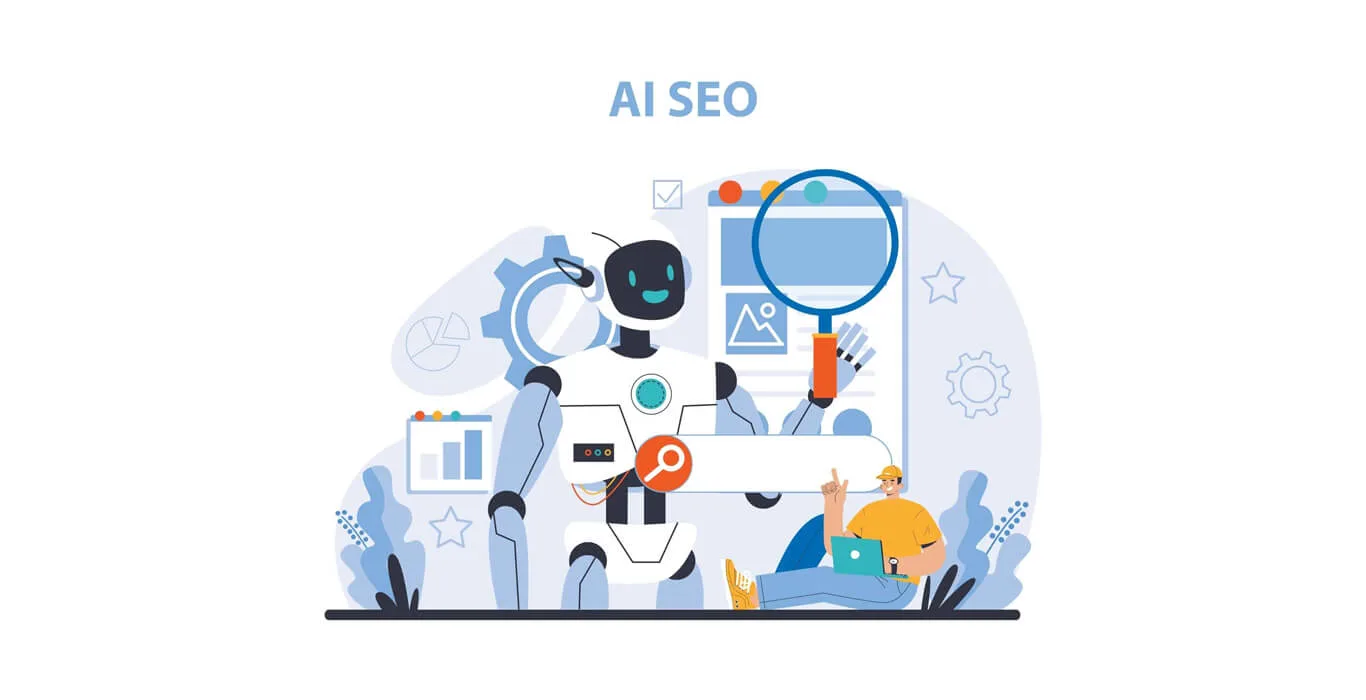Remember the good ol’ days when you simply typed a keyword or query into a search bar and got a page of blue links back? Those days are fast-moving like a wind in the digital world that we dwell in. It’s time to say hello to the age of AI Search Generative Experience (SGE), the innovative method of search, based on machine learning introduced by Google.

Google’s AI Search Generative Experience indeed is beneficial as it provides a new and improved user experience. Through machine learning and AI technologies, SGE foretells a new age of search that is more intuitive, personalised, and meaningful. When businesses and marketers incorporate SGE into their strategy, the growth potential of the digital landscape becomes crystal clear.
What is Search Generative Experience (SGE)?
Think of a search engine that knows what you want, understands your intent and gives you links, tailored info, summaries, and even next steps. SGE uses AI’s power to look at how users act, their search habits, and loads of data to offer a search that’s more personal and can change as needed.
SGE is a big step up in search tech, using advanced machine learning to get what users mean, the setting, and what they like. By going through lots of data, SGE can show search results that match what users seek. This move to a search that knows more about you calls for a smart plan from companies and marketers.
Example of SGE working: Imagine someone searching for the “best digital company in Pune.” Google search’s generative experience system does more than just look at the words you used; it takes into account where you are, your past searches, and what you’ve looked at before. The search results might show choices just for you, places nearby, and what others think, giving you a full and right search that fits what you need.
But what does this mean for businesses? Here's how you can adapt:

User Intent Analysis: Understanding the search intent is the key to SGE. Marketers have to dig deep into user behaviour, preferences and patterns while searching to predict and in turn, satisfy the users. Carrying out a detailed user intent analysis is a prerequisite for content creation, optimisation, and targeting.
Content Optimization for SGE: Content is an important factor in SGE-led search results. It is imperative to optimise content for relevance, quality and engagement. Create content that is insightful, useful, and relevant to the search queries and the user intent. Incorporate semantic keywords, structured data, and natural language to increase content visibility and relevance.
Future of Search with SGE: The future of search thrives on the adoption of AI-powered features like SGE. As Google AI develops and grows, businesses that are well-prepared for SGE will be ahead of the others in terms of search results and engagement with the users.
Benefits of SGE for Searchers: On the user’s end, SGE provides more customised and targeted search results. Through the development of knowledge about the user context and the intention, search results become more pertinent and useful, therefore saving the user time and improving the level of search satisfaction.
Feeling overwhelmed? Don’t worry! IKF, the best digital marketing company in Pune, can help you guide the ever-evolving landscape of search. Our team of experts can assist with content strategy development, SEO optimisation, and crafting content that thrives in the age of AI-powered search.
Don’t get left behind! Contact IKF today and let’s prepare your digital presence for the future of search with Google’s SGE.
FAQs
1. How does Google's Search Generative Experience (SGE) impact traditional SEO strategies?
Google’s Search Generative Experience (SGE) impacts traditional SEO strategies by prioritizing user intent and context over traditional keyword-based optimization. SGE relies on machine learning to understand user behavior, which means SEO strategies must focus on user-centric content, engagement, and relevance rather than just keywords.
2. What is Google Search Generative Experience (SGE)?
Google’s Search Generative Experience (SGE) is an AI-powered search technology that leverages machine learning to understand user intent and context, providing more personalized and relevant search results.
3. What are some key differences between traditional SEO and AI-driven search optimization?
Some key differences between traditional SEO and AI-driven search optimization include:
Focus: Traditional SEO focuses on keyword optimization, while AI-driven search optimization prioritizes user intent, context, and engagement.
Algorithm: Traditional SEO relies on static algorithms, while AI-driven optimisation uses dynamic and adaptive algorithms powered by machine learning.
Personalisation: AI-driven optimization offers personalised search experiences based on user behavior and preferences, whereas traditional SEO provides more generalized search results.
Content: AI-driven optimisation emphasizes high-quality, user-centric content, while traditional SEO often focuses on keyword density and placement.
Speed: AI-driven optimisation can adapt to changing trends and user behavior faster than traditional SEO strategies.
4. What are the benefits of optimising for AI search?
Optimising for AI search offers benefits such as personalised search experiences, improved user engagement, higher relevance in search results, and the ability to adapt to evolving search trends and user behavior.
5. Will AI search affect the ranking factors used by Google?
Yes, AI search will likely affect the ranking factors used by Google, with an increased emphasis on user-centric metrics such as user intent, content relevance, engagement, and overall search experience.

Ashish Dalia is the CEO & Chief Digital Marketing Strategist at I Knowledge Factory Pvt. Ltd.

Ashish Dalia is the CEO & Chief Digital Marketing Strategist at I Knowledge Factory Pvt. Ltd.











